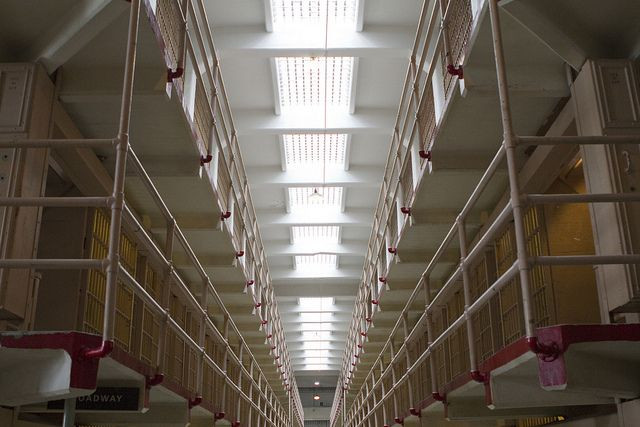Inmates With More Trustworthy Faces Get Shorter Prison Sentences, Research Shows

The first time you meet someone, the first thing you more than likely see is their face. And, it’s OK to admit, you judge them instantly on whether or not you can trust them.
Don’t worry, you’re not alone. According to research recently published in Psychological Science, inmates whose faces were rated untrustworthy by a panel of independent observers were given much harsher sentences than those with more trustworthy faces.
"The American justice system is built on the idea that it is blind to all but the objective facts, as exemplified by the great lengths we go to make sure that jurors enter the courts unbiased and are protected from outside influences during their service. Of course, this ideal does not always match reality," said psychological scientists John Paul Wilson and Nicholas Rule of the University of Toronto, co-authors on the study.
Although there has been research done regarding people’s bias toward certain types of faces, those experiments were done in controlled environments, with participants only handing out hypothetical sentences. Wilson and Rule set out to see if real life or death sentences were being administered based on this facial bias.
They used Florida, since the state’s penal system has an extensive catalogue of photos of all their prisoners and is still one of the few states left that still hands out death sentences.
The researchers obtained 371 photos of prisoners currently on death row in Florida: 226 were white, 145 were black, and all were there for first-degree murder. Wilson and Rule converted all the photos to gray scale, to minimize any variations within. Then they asked a panel of 208 Americans to look at the photos and vote on a scale of one to eight (one being very untrustworthy and eight being very trustworthy). The participants were also shown photos of age and race-matched inmates who had been convicted of first-degree murder but were serving life instead of death sentences.
The most important part of the experiment, however, was that the participants didn’t know what sentence each inmate was given, or that they were even inmates at all. Rule and Wilson found that inmates serving death sentences were thought to be less trustworthy than those serving life sentences. The lower the inmate was scored on the trustworthy scale, the greater the chance the inmate had been given a death sentence.
The researchers found that the link between trustworthiness and sentencing was even present in inmates who’d be given life sentences but were later exonerated, due to their innocence.
"This finding shows that these effects aren't just due to more odious criminals advertising their malice through their faces but, rather, suggests that these really are biases that might mislead people independent of any potential kernels of truth," Wilson and Rule said.
It is important to note just how powerful your appearance can be when it comes to someone making a decision about you.
"We think it is critical that people know and understand that these biases exist, else they might not have the presence of mind to police their thoughts and overcome them," Wilson and Rule said. "Every jury-eligible citizen is subject to participating in the process of delivering justice to others, meaning that the majority of people have a stake in better understanding how peripheral information like facial appearance can bias their ability to perform their civic duty."
Source: Wilson J, Rule N. Facial Trustworthiness Predicts Extreme Criminal-Sentencing Outcomes. Psychological Science. 2015.
Published by Medicaldaily.com



























